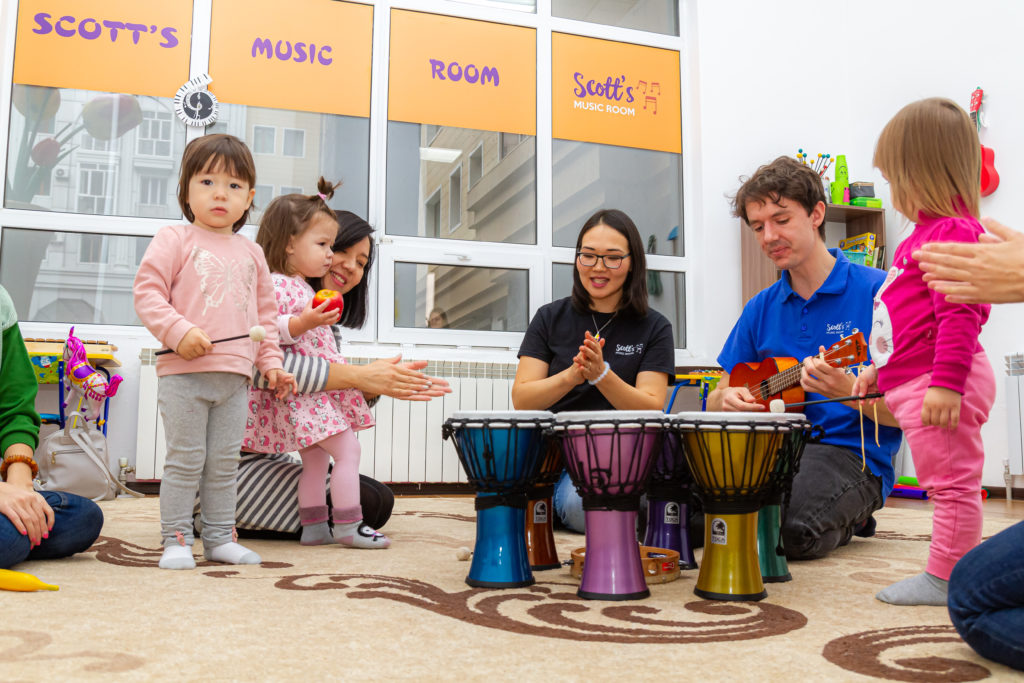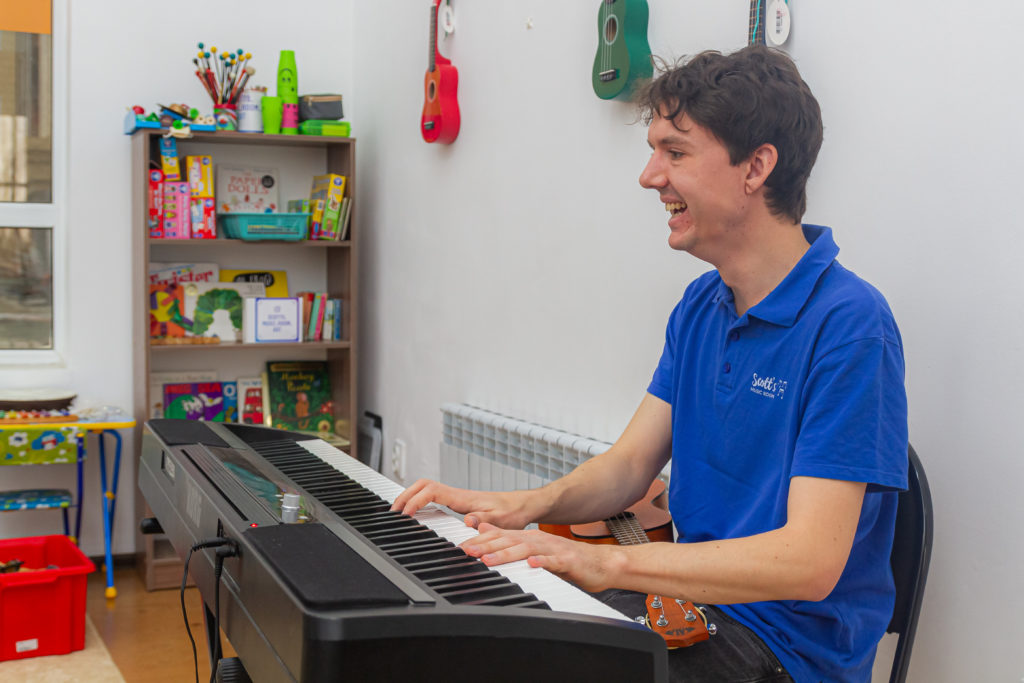NUR-SULTAN – Scott’s Music Room, a unique English language school based in the capital, offers interactive classes delivered by British music teacher and founding director Joe Scott.
Preston-born Scott opened the school with his wife Gaukhar in 2018. There are no extra requirements to enjoy the classes, as the lessons are designed for all ages and abilities.
“Most people accept the fact that music and singing affect language development, but perhaps they have not seen how this can be done in the way that we do. We use Instagram to show parents what’s going on in the class and how the activities work. People have expectations that their child will improve their English and pronunciation. We also recognise this is what the parents really want and we try to make sure that our approach meets their expectations,” he said in an interview for this story.
The couple, who started with a small number of students, has seen the business steadily grow as more people hear about the classes.
“Most parents are surprised by our lessons because they are very different than the music lessons they had in their own childhoods. This is why we opened a class for adults – it is never too late to make music part of your life! People have such busy lives and I respect anybody who takes the time to learn an instrument and also support their child’s musical education,” he noted.
If he were teaching in England, parents would not be as interested in improving their child’s pronunciation, but they recognise what Kazakh parents want.
“We want to help people make their children confident in English. A lot of parents in Nur-Sultan are looking to boost their children’s English level with a native speaker and, of course, music is very highly valued in Kazakhstan. We speak English during the classes. There are chances that children can be confused, but it’s important to support them. English is the target language,” he added.
Scott began working as a year one teacher at the Haileybury Astana School in 2011. Later, he became the head of the junior music programme. Now he enjoys the life of an entrepreneur.
“We run the centre as a family business, which helps to make our customers feel welcome and comfortable. It is important that music and language education happen in a friendly environment and we teach through interactive games, songs and activities. There are many instruments in our music room for the children to play,” he said.
The centre offers special classes on recorder (blokfleyta) and ukulele for older students. A feeling of energy and excitement pervades the room during group lessons as the children love making music with their new friends.
“I have always believed that music should be enjoyable and also that the best progress can be achieved when children first develop a love of music,” he added.
Scott’s family lives in northwest England near Manchester. He has played piano, violin and trombone since childhood and later focused on composing, improvisation, ukulele and oud, an Arabic stringed instrument.
At 14, he began studying at Chetham’s School of Music in Manchester, then continued at Cardiff University and the University of Cambridge in 2009-2011. He has a teaching degree (PGCE) from Buckingham University, which allows him to teach in different countries.
“I have been interested in music since childhood. My parents were not pushing me – I just realised that I wanted to play and they supported my choice. I believe that for a child to become a musician, they have to choose music themselves. They can’t be pressurised. Otherwise, they find themselves in the situation where they can have a fantastic music education, but they don’t have any wish to play. That’s very upsetting,” he said.
Scott finds Kazakh music beautiful and especially likes the sound of the kobyz (a two-stringed instrument) and zhetygen (a seven-stringed zither).
“Music has plenty of benefits. It helps children to listen attentively, behave well, learn languages and mathematics, develop coordination skills, improve reading, enjoy themselves, be part of a team and other skills,” he said.
Most importantly, Scott believes music lessons from a native speaker also help children develop a deep connection with the English language and learn pronunciation and vocabulary.
He noted the challenges of running a business in Kazakhstan are similar to those in other countries.
“My wife takes care of the business side of things and she also supports the children in the lessons. One particular challenge is that the format of our classes is quite unique in Kazakhstan, so we have to take extra time to explain the benefits to our customers. I am so grateful to be able to live in Kazakhstan and I feel very welcome here,” he said.


